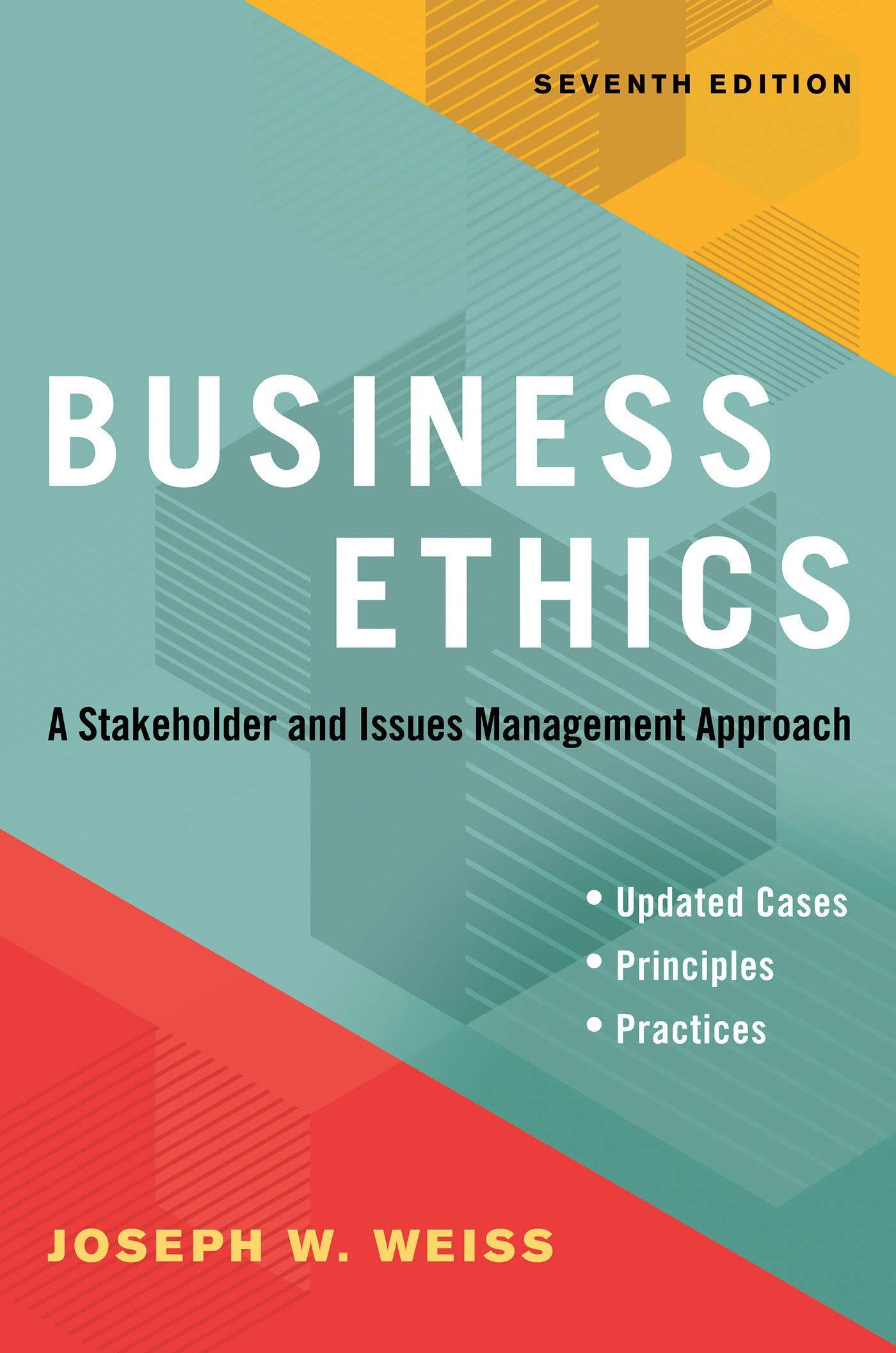Question
Should social media platforms like Facebook maintain the practice of granting access to user data to third parties, including individual researchers or companies like Cambridge
Should social media platforms like Facebook maintain the practice of granting access to user data to third parties, including individual researchers or companies like Cambridge Analytica, using APIs or similar methods? Provide reasons for supporting or opposing this practice. If in favor, outline the measures platforms should take to safeguard user privacy. Additionally, discuss the consequences of sharing such data, and provide examples of other platforms that engage in similar data-sharing practices with third parties. Context: The Facebook-Cambridge Analytica data scandal was a major privacy controversy involving the social media platform Facebook and the British data analytics firm Cambridge Analytica. The scandal came to light in March 2018 and raised significant concerns about data privacy, user consent, and the misuse of personal data for political purposes.
Here's a brief overview of the key events and issues related to the Facebook Analytica case:
1. Data Collection: In 2014, a researcher named Dr. Aleksandr Kogan developed a personality quiz app called "This Is Your Digital Life" that was hosted on Facebook. Around 270,000 Facebook users downloaded and used the app, granting it permission to access their personal data and the data of their friends.
2. Data Harvesting: What many users didn't realize was that not only did the app collect the data of those who took the quiz, but it also harvested the data of their Facebook friends without their explicit consent. This led to the collection of data from millions of users.
3. Data Transfer: Dr. Kogan then sold the harvested data to Cambridge Analytica, a company known for its involvement in political campaigns, including Donald Trump's 2016 presidential campaign. The data was used for targeted political advertising and messaging.
4. Expos: In 2018, it was revealed by whistleblowers and investigative reporting that Cambridge Analytica had acquired and used this data to build profiles of Facebook users for political purposes, including influencing voter behavior. The unauthorized access to user data raised concerns about privacy violations and the misuse of personal information.
5. Public Outcry: The revelation of the scandal sparked a public outcry, leading to calls for increased regulation of social media platforms and data privacy protections.
6. Legal and Regulatory Actions: In response to the scandal, Facebook faced investigations and legal actions from governments and regulatory authorities in various countries, including the United States and the United Kingdom. Mark Zuckerberg, Facebook's CEO, was called to testify before the U.S. Congress.
7. Changes at Facebook: Facebook made several changes to its platform and data access policies in the wake of the scandal to enhance user privacy and data protection.
The Facebook-Cambridge Analytica case highlighted the importance of user consent, data security, and the need for stronger regulations to safeguard personal data in the digital age. It also sparked broader discussions about the role of social media and technology companies in shaping public opinion and influencing political outcomes.
Step by Step Solution
There are 3 Steps involved in it
Step: 1
Maintaining the practice of granting access to user data to third parties including individual researchers or companies like Cambridge Analytica raises significant ethical and privacy concerns Here ar...
Get Instant Access to Expert-Tailored Solutions
See step-by-step solutions with expert insights and AI powered tools for academic success
Step: 2

Step: 3

Ace Your Homework with AI
Get the answers you need in no time with our AI-driven, step-by-step assistance
Get Started


